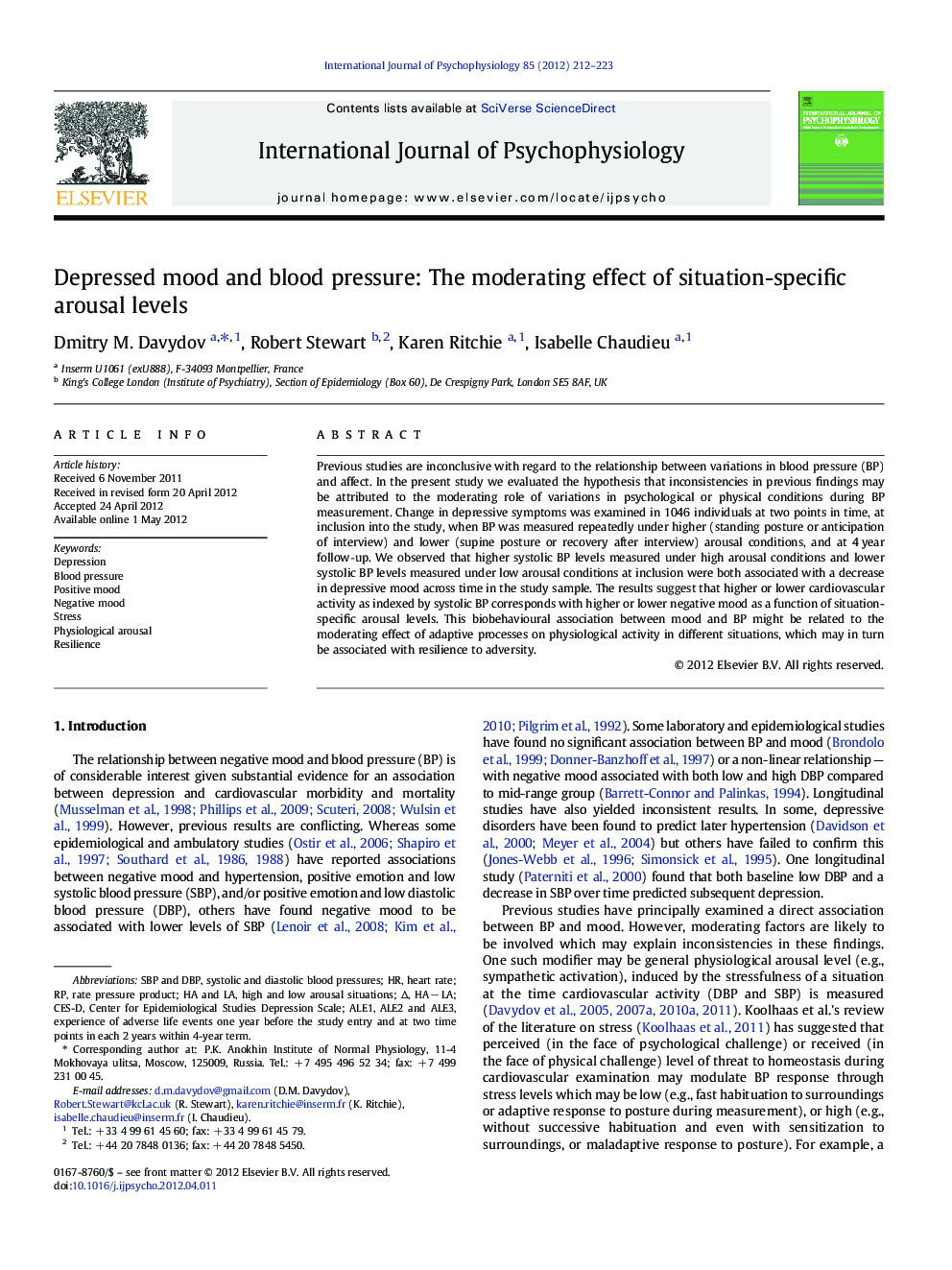| Article ID | Journal | Published Year | Pages | File Type |
|---|---|---|---|---|
| 931282 | International Journal of Psychophysiology | 2012 | 12 Pages |
Previous studies are inconclusive with regard to the relationship between variations in blood pressure (BP) and affect. In the present study we evaluated the hypothesis that inconsistencies in previous findings may be attributed to the moderating role of variations in psychological or physical conditions during BP measurement. Change in depressive symptoms was examined in 1046 individuals at two points in time, at inclusion into the study, when BP was measured repeatedly under higher (standing posture or anticipation of interview) and lower (supine posture or recovery after interview) arousal conditions, and at 4 year follow‐up. We observed that higher systolic BP levels measured under high arousal conditions and lower systolic BP levels measured under low arousal conditions at inclusion were both associated with a decrease in depressive mood across time in the study sample. The results suggest that higher or lower cardiovascular activity as indexed by systolic BP corresponds with higher or lower negative mood as a function of situation-specific arousal levels. This biobehavioural association between mood and BP might be related to the moderating effect of adaptive processes on physiological activity in different situations, which may in turn be associated with resilience to adversity.
► Blood pressure level was measured under assumed higher and lower arousal conditions. ► Depressive symptoms were examined at the study entry and at a 4 year follow‐up. ► Blood pressure obtained under high arousal was negatively related to depressed mood. ► Blood pressure obtained under low arousal was positively related to depressed mood. ► This difference of cardiovascular activity indicated a mechanism of mood resilience.
